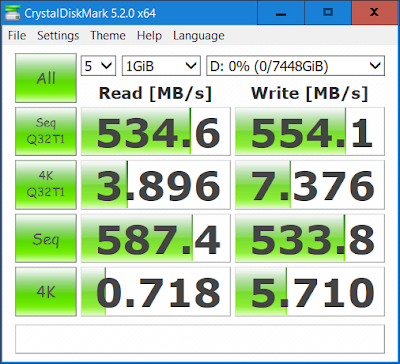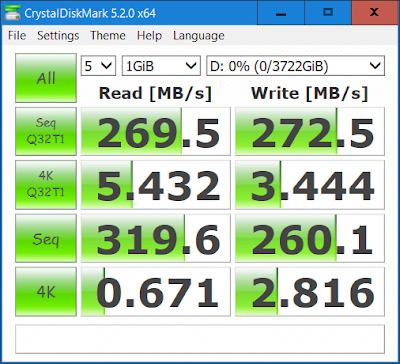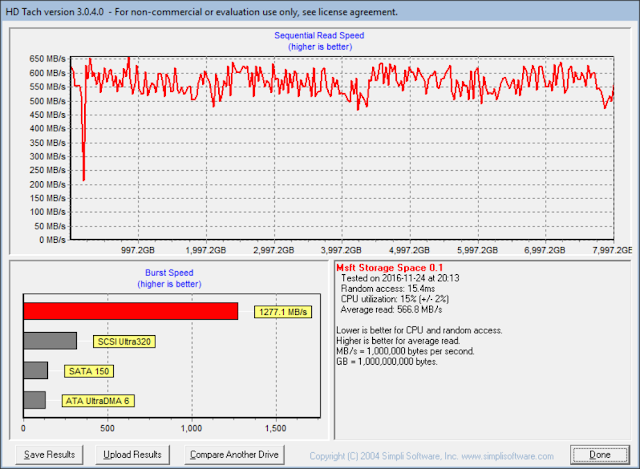In Microsft Windows 8/8.1/10/ Server 2012/2012 R2/2016 Storage Spaces is an alternative method of joining multiple Physical Drives into a variety of 'Virtual Disks'. This has a few advantages in the form of high flexibility, but comes with the caveats of lower speeds than traditional hardware raid.
I have recently acquired a Gen8 HP Micro Server with 4x 2TB Western Digital RED drives in it. The Micro Server has an inbuilt Software Raid controller capable of only Raid 1 and Raid 0, so I'm interested in Storage Spaces for a Raid 5 equivilent.
The part I'm most interested in is the speeds the three modes can run at, so I've performed just a few quick benchmarks on each mode (Simple, Mirror, Parity) for a short comparison, enjoy!
 | |
| Server Manager - Storage Spaces |
 |
| Virtual Disk - Simple Mode |
 |
| Virtual Disk - Mirror Mode |
 |
| Virtual Disk - Parity Mode |
HDTach
 |
| Virtual Disk - Simple Mode |
 |
| Virtual Disk - Mirror Mode |
 |
| Virtual Disk - Parity Mode |
Mirror Mode offers a nice balance, at the expense of storage capacity and Parity Mode gives the best comprimise between storage space and redundancy at the expense of write speed.
I believe the reason the Parity HDTach result is so high is due to the fact it uses a cache for reading data, so the speed is actually the Interface Speed rather than the disk speed, so I believe the Crystal Disk Mark result is more reliable in this instance.
Read more about Storage Spaces here: https://technet.microsoft.com/en-us/library/hh831739%28v=ws.11%29.aspx?f=255&MSPPError=-2147217396
No comments:
Post a Comment